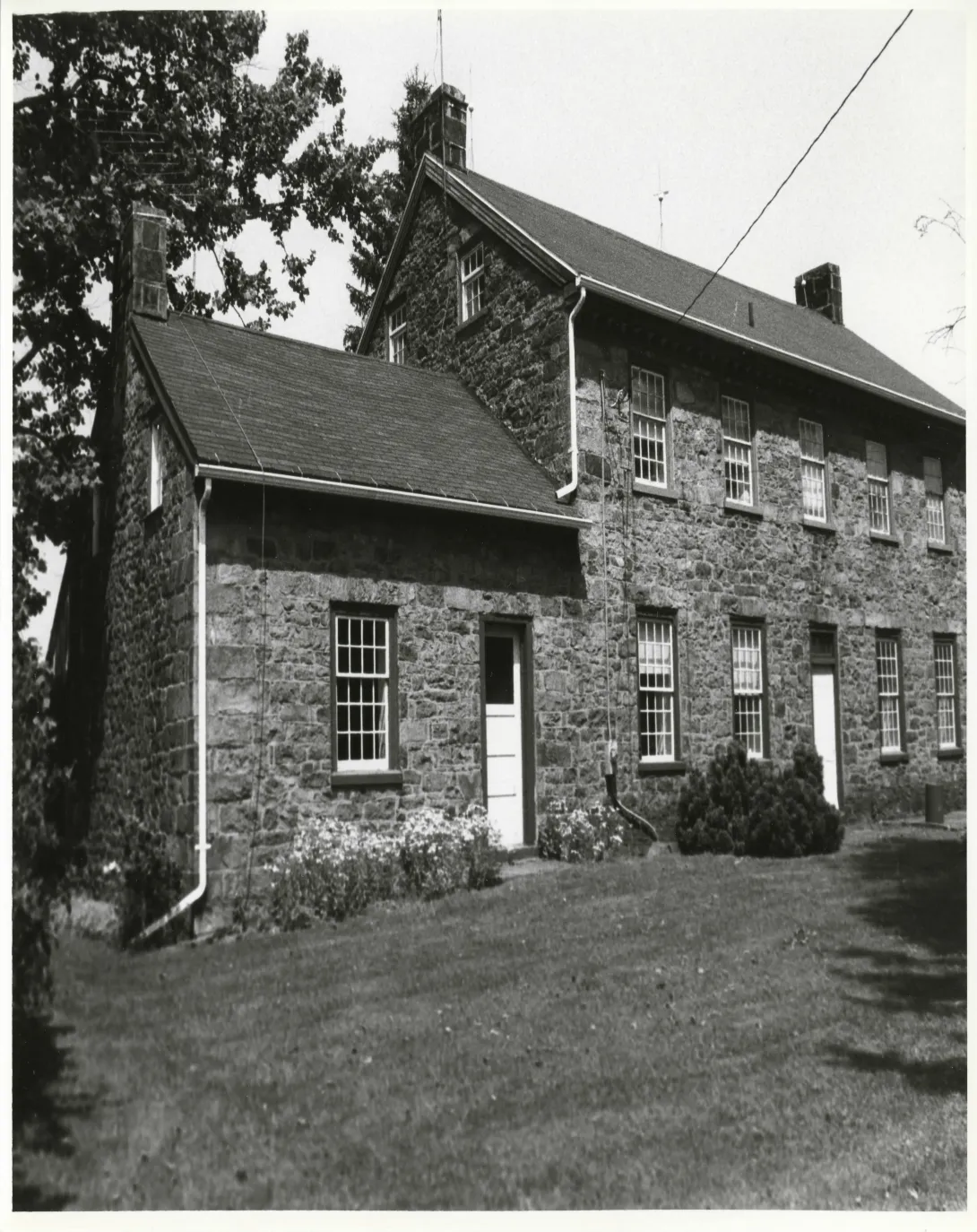The early nineteenth century was a time of settlement and commercial development in Western Pennsylvania. Kingston House played a significant role in that activity. Built along a heavily traveled east-west highway, the house served as a stop for numerous settlers, traders, and travelers. Kingston House was also the home of a prominent Westmoreland family, the Johnston family. Alexander Johnston, for whom the house was constructed in 1815, held numerous county positions.
The third son, William Freame Johnston, was the governor of Pennsylvania from 1848 to 1851. As the only surviving building closely associated with the life of Governor Johnston, an integral part of the early transportation system in western Pennsylvania, and an excellent example of an early western Pennsylvania home, Kingston House remains an important part of Westmoreland County's history.
Located along the Greensburg-Staystown section of the road from Philadelphia to Pittsburgh, the house became a frequent stop for travelers even before the turnpike was completed. For over thirty years, Kingston House offered food and lodging to the almost continuous flow of wagoneers and settlers who used the road. During the 1840s, the house also served as a regular stop for stagecoaches. Passengers could refresh themselves with food and drink while drivers attended to their horses. Among the notable guests at Kingston House were William Henry Harrison and Zachary Taylor, who stayed there during their presidential campaigns in western Pennsylvania. Throughout its years as an inn, the house maintained a reputation for being friendly and well-maintained.
Kingston House was built for Alexander Johnston, a Scots-Irish immigrant, who came to western Pennsylvania in the late 18th century. In 1811, he purchased a tract of land known as the Kingston Tract along Loyalhanna Creek in Westmoreland County. On his land, Johnston established one of the first iron businesses in western Pennsylvania. After a few lean years as an ironmaster, Johnston gave up his iron business and converted his home, Kingston House, into an inn. As an innkeeper, Johnston experienced quick success. The house remained a popular hostel through the 1840s. Aside from his commercial pursuits, Johnston was also active in county political affairs. A staunch Federalist and later a Jackson Democrat, he held numerous local offices, including sheriff, justice of the peace, county treasurer, and court register and recorder.The oldest son, John, a graduate of the United States Military Academy at West Point, had a notable military career, which included service as a captain during the American Civil War. Another son, Richard, served as a volunteer in the Mexican War. A survivor of many bloody battles, Richard was killed at Molinaro del Rey and afterward was remembered as a local war hero. The most distinguished of Johnston's sons was Freame William.
He served as the Governor of Pennsylvania from 1848 to 1852 and later became the President of the state Senate in 1847. As Senate leader, he assumed executive responsibilities upon Governor Shunk's resignation in 1848. Immediately calling a special gubernatorial election, Johnston ran on the Whig ticket. Upon his election in October 1848, he became the first Whig governor in Pennsylvania history. As governor, Johnston significantly reduced the state debt and initiated actions that led to the publication of the Pennsylvania Archives and Colonial Records. After a narrow defeat in the 1851 gubernatorial election, Johnston returned to practice law in Westmoreland County and remained active in political affairs on both local and state levels.
Kingston House has been recognized for some time as a fine example of early Western Pennsylvania architecture. Its size and quality are unusual for the early period in the region. Constructed in the Federal vernacular, Kingston House features rubble stone masonry with irregular quoins that define the cornices.